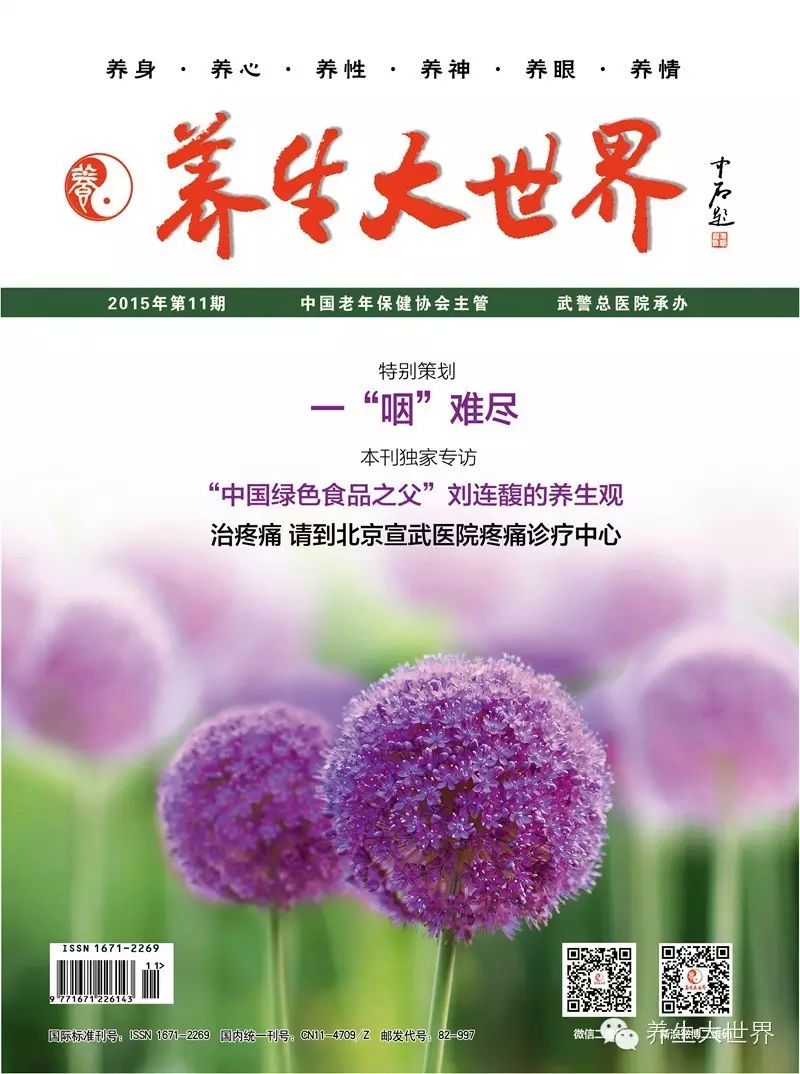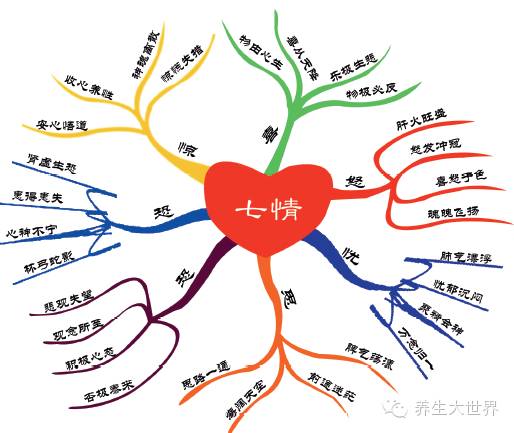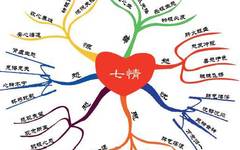
Supported by Expert: Gao Zhiying, Associate Chief Physician of the Acupuncture Department, Changsha Traditional Chinese Medicine Hospital
The seven emotions, namely joy, anger, worry, thought, sadness, fear, and shock, are changes in emotional states that belong to psychological pathogenic factors. Under physiological conditions, emotional changes are normal responses of the body to various external stimuli, which can regulate the qi and blood of the organs and prevent disease. However, sudden intense or prolonged emotional stimuli that exceed the physiological regulatory capacity can disrupt the qi and blood of the organs, leading to persistent emotional changes and the onset of disease.

Characteristics of Diseases Caused by the Seven Emotions Diseases caused by strong or prolonged emotional stimuli mainly have three characteristics. First, they affect the qi and blood of the organs, causing qi and blood to become chaotic, leading to various symptoms. The main manifestations are: joy leads to relaxed qi, anger leads to rising qi, sadness leads to diminished qi, thought leads to stagnant qi, fear leads to descending qi, and shock leads to chaotic qi. Second, they directly harm the internal organs; different emotional stimuli can injure different organs, resulting in various pathological changes. As stated in the Su Wen: On the Correspondence of Yin and Yang: “Anger harms the liver, joy harms the heart, thought harms the spleen, worry harms the lungs, fear harms the kidneys,” which conveys this meaning. Third, fluctuations in emotions can alter the course of diseases. Abnormal emotional activities inevitably affect existing diseases, potentially worsening the condition, accelerating deterioration, or even leading to death.

Joy Leads to Relaxed Qi Moderate joy is beneficial for harmonizing qi and blood, alleviating tension. However, excessive joy can scatter the heart’s qi, making it difficult to concentrate, leading to palpitations, insomnia, and even mental confusion. In the Qing Dynasty novel Rulin Waishi, the story of Fan Jin illustrates this: after a lifetime of pursuing fame, he finally became a successful candidate at over fifty. Before this, his father-in-law insulted him, but after his success, he was praised, and overwhelmed with joy, he went mad. This is a typical case of excessive joy leading to mental confusion. How to manage excessive joy? First, maintain a sense of caution, avoid unrealistic desires, and do not seek unattainable goals. Second, keep a calm mind, do not force matters, and after efforts, let things take their natural course.

Anger Leads to Rising Qi When encountering unpleasant situations, temporarily expressing mild displeasure can help release suppressed emotions and alleviate mental tension. However, anger leads to rising qi and harms the liver, affecting the mood of those around. Excessive anger can cause headaches, flushed face, loss of appetite, and in severe cases, vomiting, abdominal pain, or even fainting. The methods for managing excessive anger are as follows: learn to vent anger by confiding in close friends or having a good cry; learn to redirect anger by engaging in enjoyable activities such as singing, watching movies, walking, or exercising to gradually calm the mind.

Sadness (Worry) Leads to Diminished Qi Excessive sadness depletes lung qi, with symptoms including low voice, shortness of breath, and lethargy. The character Lin Daiyu from Dream of the Red Chamber is a typical example of excessive sadness. Orphaned at a young age and living under the care of her grandmother, she often felt pressured in the competitive Rongguo House, ultimately leading to her early demise. The methods for managing excessive sadness include: allow oneself to cry when needed, do not suppress feelings of gloom; transform sadness into strength through reflection.

Thought Leads to Stagnant Qi Excessive worry can harm the heart and spleen, leading to loss of appetite, abdominal bloating, palpitations, and even mental confusion. If excessive worry arises from unfulfilled desires, it can harm the liver and kidneys. To prevent and treat this, it is recommended to frequently participate in social and cultural activities, develop personal interests, and make friends while learning to express oneself.

Fear Leads to Descending Qi Fear refers to excessive fear, often resulting from shock. Fear harms the kidneys, leading to unstable kidney qi, which can cause pale complexion, dizziness, frequent urination, and depletion of vital energy. Learning to avoid fear and cultivating a courageous spirit are important methods for preventing and treating excessive fear.

Shock Leads to Chaotic Qi As stated in the Su Wen: On Pain: “Shock causes the heart to have no resting place, the spirit to have no home, and the thoughts to have no focus, thus leading to chaotic qi.” Shock refers to sudden, unexpected, and intense stimuli that cause emotional fluctuations. It is important to maintain a calm and composed mindset to handle unexpected situations. Conclusion In life, do not take honor and disgrace too seriously; do not dwell on promotions and losses; do not be overly concerned about temporary setbacks. Like the blooming and withering of flowers, the gathering and dispersing of clouds, and the rising and falling of tides, let things take their natural course. For methods to regulate emotions, the famous Qing Dynasty physician Wang Ang suggested: “When feeling mentally disturbed, lie on your side and calm your mind by counting breaths; after counting to several hundred, the heart fire will decrease, the qi will be refreshed, and the mind will be clear, alleviating fatigue and enhancing wisdom.” Readers with fluctuating emotions may find this advice helpful.


